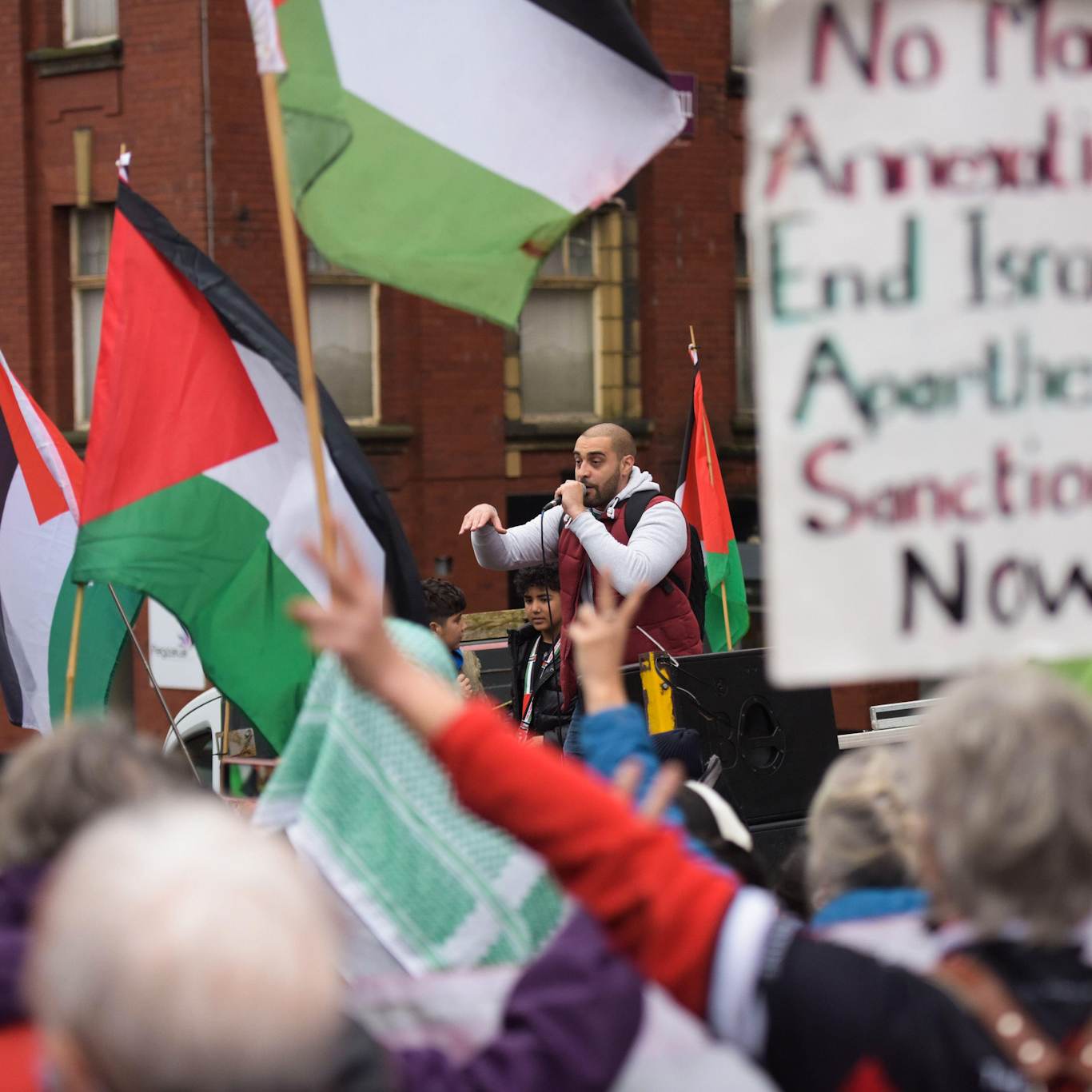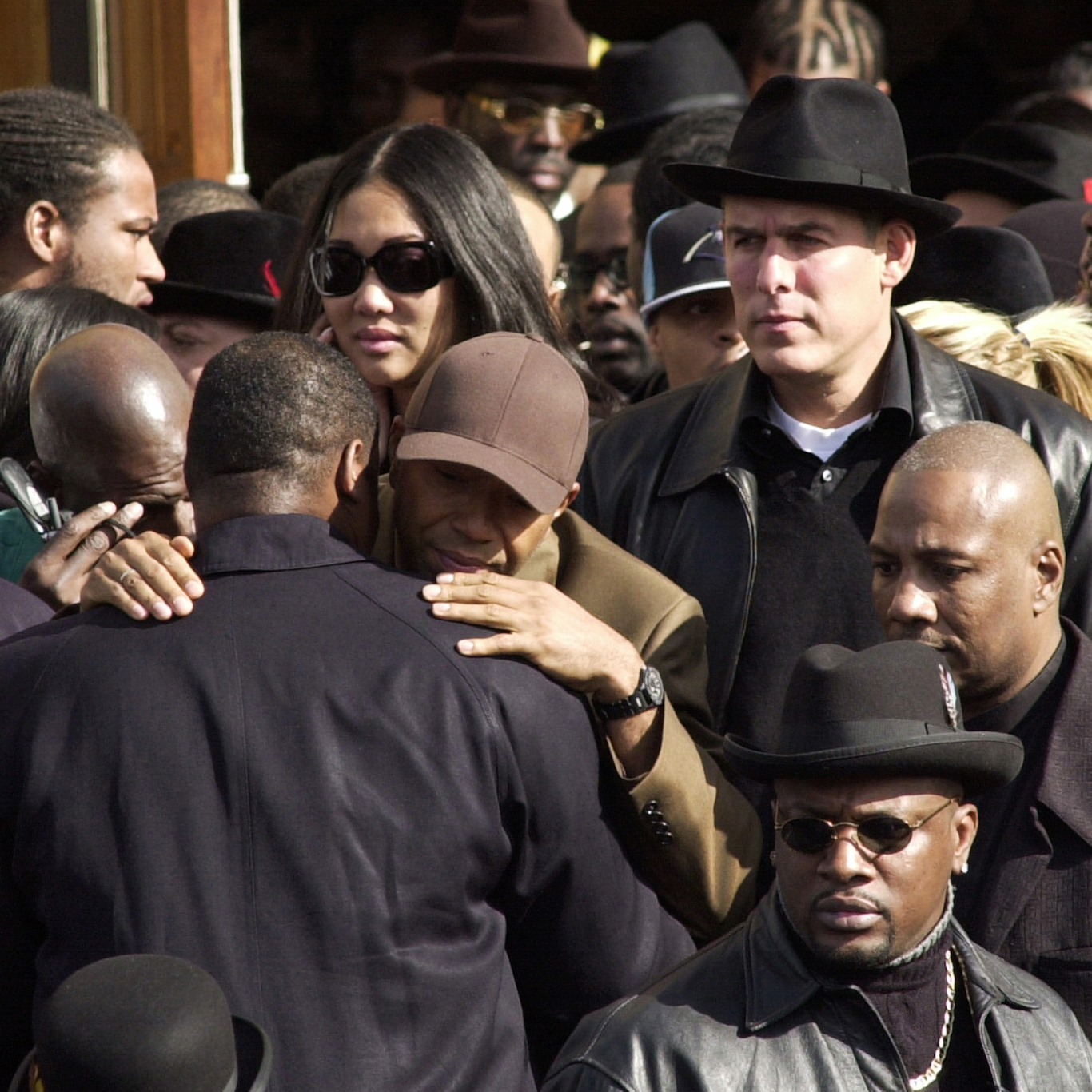In a shocking turn of events, YouTube has abruptly taken down the official music video of “Terrorist?”, a chart-topping anthem by activist rapper and MintPress News contributor Lowkey. No rationale was provided, leaving the renowned artist and his record label, Global Faction, bewildered. Yet, when one considers the track poses profound inquiries about the identities of genuine “terrorists” on the global stage, particularly given the dire circumstances surrounding Tel Aviv’s current genocidal campaign in Gaza, the motives become painfully apparent.
“Terrorist?” was first released on Lowkey’s groundbreaking Soundtrack to the Struggle in 2011. Back then, the US and its global vassals were thoroughly ensconced in the “War on Terror.” That ominous period’s devilish narrative held that a constant specter of menacing “Islamist extremists” lurked behind every corner of Western societies. It was a lie justifying the industrial-scale erosion of civil liberties throughout the West and a relentless onslaught of aggressive military “interventions” throughout West Asia and beyond.
My music video was censored and removed by YouTube. https://t.co/OWeYwkbU3k
— Lowkey (@Lowkey0nline) October 16, 2023
The track’s fearless dismantling of Western government’s definition of “terrorism” remains as pertinent and crucial today as it did back then, which surely contributes to its unwavering popularity. When YouTube inexplicably yanked the video, it had amassed a staggering five-and-a-half million views, a testament to the enduring resonance of its message.
In the opening moments of “Terrorist?”, Lowkey thoughtfully recites the Oxford English Dictionary definition of terrorism as “violent or destructive acts, such as bombing, committed by groups to intimidate a population or government into granting their demands.” He then poses a provocative question: “So what’s a terrorist?” From there, Lowkey boldly challenges his audience, pondering whether major arms manufacturer BAE Systems and their “remote-controlled drones” or the improvised “homemade IEDs” present a more profound menace to human society.
In the track’s second verse, Lowkey references CIA and MI6 coups and assassinations during the Cold War, focusing on Chile, Congo, and Iran – just three examples among a great many devastating Western covert actions in the Global South. He acknowledges the vast number of US and British military bases the world over. He suggests this amounts to “terrorism every day.” After all, the term’s definition is “dependent” on “who your nemesis is.”
‘Potential Nightmare’
Considering Lowkey’s extensive track record of unflinching anti-Zionist advocacy, his exploration of the Palestinian struggle in “Terrorist?” is remarkably restrained. In a sardonic touch, he merely points out that “more Israelis die from peanut allergies” than from so-called “terrorism.” He refrains from delving deeper into the subject. However, it is possible even this brief mention was central to the track’s removal by Google.
Since the audacious Palestinian strike against Tel Aviv began on October 7th, Israeli leader Benjamin Netanyahu and his government have consistently portrayed themselves as victims of “terrorism” and engaged in a fight against it. Meanwhile, they frequently compare Hamas to ISIS or even worse. In response, Israeli Occupation Forces (IOF) carry out relentless and indiscriminate carpet bombings of Gaza, destroying housing blocks, schools, and hospitals, producing a tragic human toll running to thousands, including many innocent children.
As Western leaders continue to endorse this grotesque butchery, millions across the globe have risen in solidarity with Palestinians. Many are left wondering how wanton Zionist devastation of the Occupied Territories cannot fall within dictionary definitions of “terrorism.” In truth, Israeli actions align perfectly with widely received comprehension of the term, as articulated by Lowkey in his now-suppressed protest rap: “violent or destructive acts, such as bombing committed by groups in order to intimidate a population or government into granting their demands.”

Additional tracks by Lowkey unapologetically denouncing Zionist oppression of the Palestinian people are now in the crosshairs for Spotify. Disturbingly, the music streaming giant appears to be collaborating with Zionist organizations to censor content challenging the status quo. This follows orchestrated efforts to cancel Lowkey’s concerts and appearances at political events in recent years, led by Zionist organizations and their operatives.
As far back as 2011, the far-right and frequently legally challenged Jewish Chronicle referred to Lowkey’s endless capacity for connecting with young audiences as a “potential nightmare” for Zionism. Now, as Western leaders and media outlets rally to endorse, sometimes even preemptively, Israeli atrocities in Gaza without reservation, his platform and ability to influence listeners and viewers is surely even more “nightmarish” than ever before.
As luck would have it, at least from Tel Aviv’s perspective, YouTube long ago welcomed the Anti-Defamation League, a powerful Zionist lobbying group notorious for propagating anti-Palestinian rhetoric, as one of its “trusted flaggers.” Under this program, organizations hold the authority to “report content that infringes upon their community guidelines,” facilitating swift censorship through suppression or even outright removal.
This dark handshake between YouTube and Zionism surely accounts for a baffling “age restriction” imposed on a May 2019 CNN interview with Lowkey regarding that year’s Eurovision Song Contest hosted in Tel Aviv. This restriction, imposed long after the video’s upload, makes the clip unsearchable. Such treatment has also been extended to a February 2022 video from Amnesty International, in which the human rights organization painstakingly elucidates its determination that Israel’s treatment of Palestinians unequivocally meets the criteria for apartheid.
Throughout Israel’s harrowing campaign in Gaza, disturbing Tel Aviv-sponsored cartoon advertisements strategically aimed at children and their parents have loomed large. These clips, which aim to evoke sympathy for Zionists and Zionists, now preface countless YouTube videos, specifically those with a high likelihood of being viewed by younger audiences.
“I was shocked to find out the music video for my song “Terrorist?” was removed by YouTube. In 2019, YouTube placed a warning on the video that it might be offensive, which hurt views as people had to sign in to watch it,” Lowkey tells MintPress. “That was bad enough, especially when there are all types of music videos on the platform with far more violent content.”
“Tall Israeli”
The Anti-Defamation League’s designation as a “trusted flagger” for YouTube closely followed the appointment of veteran hip-hop impresario Lyor Cohen as the streaming platform’s Global Head of Music in September 2016. Cohen was once described as a “tall Israeli who runs the rap industry” by hip-hop luminary Mos Def.
Cohen hails from New York City, where he was born into a family with deep ties to the Zionist terror group Haganeh, notably its infamous Harel Brigade, which played a pivotal role in the tragic 1948 Nakba—his formative years included a residence in Kfar Haim, a Zionist settlement in Palestine named after Haim Arlosoroff. Arlosoroff negotiated financial agreements with Nazi German authorities in the 1930s, facilitating the transfer of German Jews and their assets to Palestine.
Cohen’s career is stained by a troubling history of censoring pro-Palestinian voices. During his tenure with iconic hip-hop label Def Jam in the late 1980s and early 1990s, he controversially decided to dismiss Professor Griff, a Muslim, from the politically charged rap group Public Enemy due to Griff’s outspoken criticism of Israel. More recently, while at Warner Music, Cohen was accused of deliberately obstructing the promotion and release of an album by Lupe Fiasco, an artist known for his unwavering support of the Palestinian struggle.

It is surely no surprise then that YouTube has former Occupation Force soldiers and intelligence operatives within its ranks. For example, the platform’s marketing chief, Riki Drori, once served as a communication officer within the Israeli Occupation Forces (IOF). Meanwhile, Netta Gross has held various high-ranking roles at Google and YouTube since 2012 and served as an IOF satellite officer from 2003 to 2006. Naama Citron, another stalwart at Google and YouTube, presently serves as the latter’s product strategy lead, but her background includes four years as an Israeli intelligence operative, during which she led a “professional research & analysis team of seven soldiers.” Dror Oren, the senior product director at YouTube, boasts a past as a senior IOF analyst from 1994 to 2000.
To put it mildly, YouTube’s upper echelons are teeming with individuals who harbor sympathies for the Zionist cause, individuals who may be more than willing to heed, if not actively endorse, directives pertaining to the removal or suppression of videos. This takes place against the backdrop of the Israeli Occupation Forces’ ominous pursuit of a dreadful “second Nakba” in Gaza.
With Elon Musk putting an end to Twitter’s own “trusted flagger” program, one that included the Anti-Defamation League, it has placed limitations on the Israel lobby’s capacity to control the dissemination of content shedding light on the genocidal facets of Zionism. Consequently, the need to escalate censorship endeavors on other platforms becomes even more pronounced by necessity.
“It seems Israel’s latest war on Gaza has been seen as an opportunity to clean up political content on the internet and reassert informational dominance,” Lowkey concludes. “Ultimately, it will not work. As book burners of the past found, when you suppress an idea, you discredit your own arguments against it.”
Feature photo | Illustration by MintPress News
Kit Klarenberg is an investigative journalist and MintPress News contributor exploring the role of intelligence services in shaping politics and perceptions. His work has previously appeared in The Cradle, Declassified UK, and Grayzone. Follow him on Twitter @KitKlarenberg.
The post YouTube’s Connections to Pro-Israel Lobby Behind Removal of Lowkey’s Infamous Song: ‘Terrorist’ appeared first on MintPress News.